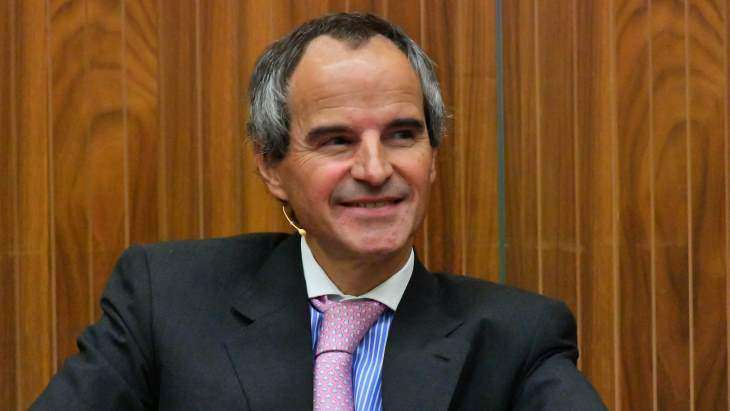International Atomic Energy Agency (IAEA) Director General Rafael Mariano Grossi on Monday expressed hope that the watchdog would soon be able to solve the issue of Iran's reluctance to give access to its nuclear facilities
MOSCOW (Pakistan Point News / Sputnik - 09th March, 2020) International Atomic Energy Agency (IAEA) Director General Rafael Mariano Grossi on Monday expressed hope that the watchdog would soon be able to solve the issue of Iran's reluctance to give access to its nuclear facilities.
Last week, Reuters reported, citing the agency's extraordinary report on Iran's nuclear activities, that Tehran had accumulated more than a tonne of low-enriched uranium in violation of the nuclear deal's restrictions since scrapping its core commitments under the accord in response to renewed US sanctions. In the report, the IAEA also urged Iran to provide access to two locations in Iran, where the agency suspects undeclared nuclear material and nuclear-related activities. Tehran has slammed the report saying it is based on documents from the so-called Israeli nuclear archive, a collection of documents allegedly smuggled by the Israeli intelligence from Iran, demonstrating that the Iranian nuclear program has pursued military objectives, which Tehran denies.
"This report is my obligation as director general to indicate to the member states what the situation is as we gather for the board of Governors. In this sense, I hope that by providing this information and by engaging further with Iran, I hope, in the next few days or hours we will be able to unblock the current situation. The consequence that I expect is to get access, frankly," Grossi told reporters at a press conference, live-streamed by the agency's official YouTube account.
When asked about the information on which the agency based its request, Grossi specified that it had come from IAEA and that all data received by it undergoes rigorous evaluation process.
"We go through a painstaking, systematic, methodological, scientific process of validating and corroborating information. We never take any information at face value. Never," he stressed.
Grossi added that the agency will continue attempting to get Tehran to allow them to inspect its sites.
"We have been insisting, we have been asking them to provide us access and we are ready to continue that discussion," the director general said.
In 2015, Iran signed the Joint Comprehensive Plan of Action (JCPOA) with China, France, Germany, Russia, the United Kingdom, the United States, Germany, and the European Union. It required Iran to scale back its nuclear program and severely downgrade its uranium reserves in exchange for sanctions relief. In 2018, the United States abandoned its conciliatory policy on Iran, withdrawing from the JCPOA and hitting Iranian petroleum industries with sanctions.
On May 8, 2019, the first anniversary of the United States' unilateral withdrawal from the agreement, Iran announced a gradual reduction of its JCPOA obligations.




